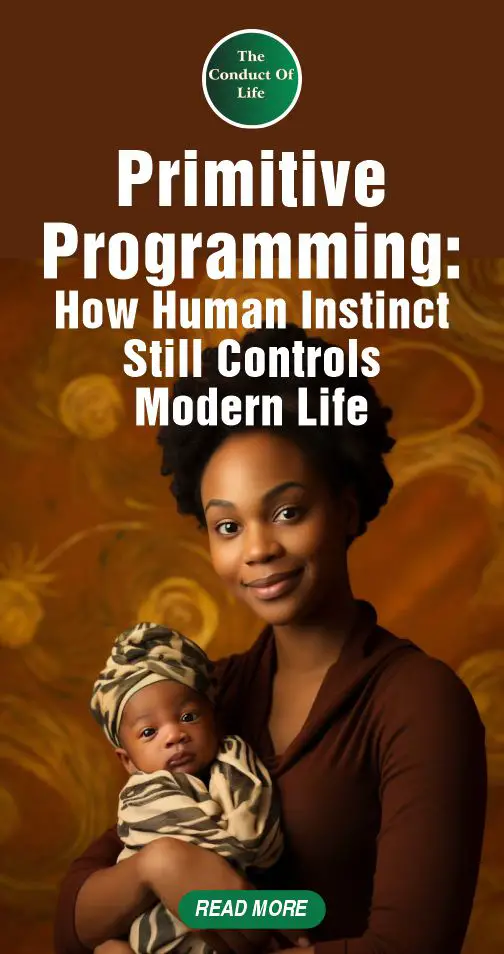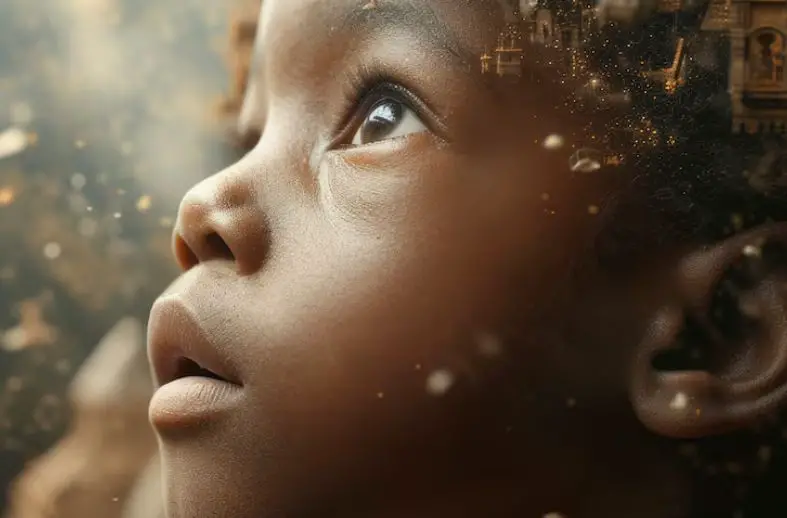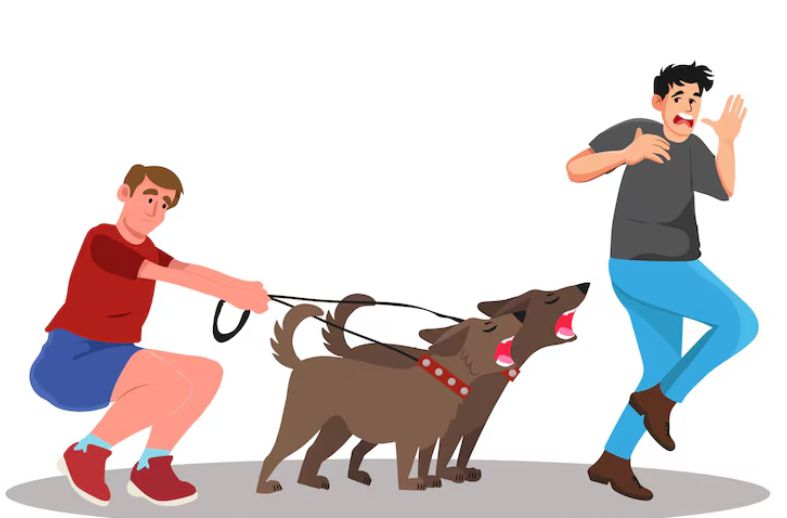Human instincts are powerful, primal forces that shape your choices, relationships, and survival. Here’s why they matter more than you think, and how they influence everyday life.
You experience instincts every day, some deeply rooted in your past, others quietly guiding your actions without your notice.
These impulses influence how you respond to danger, make split-second decisions, and navigate social situations.
From the moment you wake up to the choices you make throughout your day, instincts shape your behavior in ways you might not fully recognize.
They help protect you, drive your emotions, and affect your interactions with others.
This page will take you through the many forms instincts take, showing examples that connect with your daily experiences.
By understanding how these natural forces work, you’ll gain insight into the hidden drivers behind your reactions and habits.
You’ll discover how instincts remain an active part of your mind and body, influencing survival, relationships, and personal growth in ways that quietly shape your life every moment.
Related: What Are Emotions? Types and The Role They Play

Main Points
- Human instincts are natural, automatic responses, hardwired into biology, guiding quick reactions to danger, hunger, and social cues without learning.
- Fight-or-flight instincts enabled early humans to escape predators, while hunger and thirst drove ensure regular nourishment for survival.
- Instincts fostered group living, encouraging empathy, communication, and resource sharing, boosting survival through cooperation in early tribes.
- Instincts aid quick reactions in danger but may cause overreactions or bias, clashing with modern logic and social norms.
- In emergencies, fight, flight, or freeze responses activate, sharpening senses and reflexes to prioritize escape or defense instantly.
What is Human Instinct?
Human instinct refers to the natural, automatic responses or behaviors that occur without conscious thought or prior learning. These inborn tendencies help you react quickly to certain situations, especially those related to survival and safety.
Unlike skills you acquire through experience or education, instincts are built into your biology and passed down through generations.
They drive reactions like pulling your hand away from something hot or feeling alert in a dangerous environment.
Instincts form a foundation for how humans interact with the world, influencing emotions, decisions, and basic needs without requiring explicit instruction.
“Instinct is a marvelous thing. It can neither be explained nor ignored.”
-Agatha Christie-
Difference Between Instinct and Learned Behavior
Instincts Are Inborn and Automatic
Instincts are natural responses you’re born with. They happen without conscious effort or practice.
These automatic reactions are hardwired into your brain and body, enabling immediate responses to certain stimuli, like pulling away from pain or feeling fear in danger.
Learned Behaviors Develop Over Time
Learned behaviors form through experience, observation, or instruction.
You acquire them by practicing or adapting to your environment, such as learning to speak, ride a bike, or solve problems.
These behaviors require conscious effort and change based on your surroundings.
Instincts Support Survival Basics
Instincts create a foundation for survival by guiding essential actions automatically.
They help you react quickly to threats, hunger, or social cues without thinking, ensuring basic needs and safety are met from birth.
Learned Behaviors Enable Adaptation
Learned behaviors allow you to adjust to new situations or challenges.
Unlike instincts, they evolve with your experiences, helping you develop skills and knowledge needed to thrive in complex or changing environments.
| Difference | Instincts | Learned Behaviors |
|---|---|---|
| Origin | Inborn and automatic; present from birth | Developed over time through experience, observation, or instruction |
| Conscious Effort | No conscious effort needed; happen naturally | Require conscious practice, effort, and adaptation |
| Function | Guide immediate survival responses and basic needs | Help adapt to new situations, acquire skills, and solve problems |
| Flexibility | Fixed responses hardwired in brain and body | Flexible and changeable based on environment and experience |
| Examples | Pulling away from pain, fear reactions | Learning to speak, ride a bike, or use tools |
Related Posts
The Balance between Primal Instincts & Emotional Intelligence
Why You Should Trust Your Instinct in Relationships
Difference between Intuition and Instinct
Consequences of Ignoring Your Instincts
Ways Primal Instincts Keep You Alive
How Instincts Drive Desire for Status
How Instincts Evolved in Human History

Human instincts developed gradually over millions of years, shaped by the pressures and challenges faced by early ancestors.
As the environment changed, whether through climate shifts, new predators, or competition for resources, humans who possessed effective instinctive responses were more likely to survive and pass these traits to their descendants.
Instincts acted as built-in tools to help navigate danger, secure food, and ensure reproduction, laying the foundation for human survival.
Survival Through Instinctive Responses
One of the earliest and most vital instincts was the fight-or-flight reaction, which allowed humans to respond quickly to threats.
This automatic fear response helped avoid predators and other dangers, increasing chances of survival.
Similarly, instincts related to hunger and thirst ensured individuals sought food and water regularly.
These survival instincts required no learning, just immediate action that protected early humans in life-or-death situations.
Social Instincts and Cooperation
Humans are naturally social creatures, and instincts promoting group living evolved as another key survival advantage.
Early humans instinctively formed tribes or communities, relying on cooperation for hunting, protection, and raising offspring.
Social instincts encouraged behaviors like empathy, communication, and sharing resources.
These traits improved group survival rates by creating bonds and reducing conflict within the group, allowing humans to thrive in complex social environments.
Passing Instincts Through Generations
Instincts became hardwired into human DNA through natural selection.
Those with effective instinctual behaviors lived longer and reproduced more, passing those traits to the next generation.
Over time, this process refined instincts to fit the needs of each era, helping humans adapt to new environments without conscious thought.
While some instincts remain largely unchanged, others evolved as humans developed culture, language, and technology.
Balancing Instincts and Learned Skills
As human societies advanced, instincts began to work alongside learned behaviors.
While instincts provide quick, automatic responses, learned skills allow for thoughtful problem-solving and adaptation.
This balance has helped humans handle more complex challenges, such as building tools, creating social rules, and forming civilizations, without losing the survival advantages instincts provide.
Today, your instincts quietly influence your decisions, blending with knowledge and experience to guide your actions in daily life.
Related: Body Language and How it Shapes Communication
Types of Human Instincts

Understanding the different types of human instincts helps reveal how these natural drives shape your everyday life.
Instincts guide a wide range of behaviors, from protecting yourself to forming bonds with others.
They can be grouped into key categories that cover the core areas of human experience: survival, reproduction, social connection, and emotions.
Survival Instincts
Survival instincts are your body’s immediate responses to danger and basic needs.
The fight, flight, or freeze reaction kicks in when you face threats, whether it’s escaping harm, standing your ground, or becoming still to avoid detection.
Reflexes also help protect you, such as blinking when something approaches your eyes or pulling your hand away from something hot.
Additionally, hunger and thirst drive you to seek nourishment and hydration, ensuring your body stays fueled and functioning.
These instincts work without conscious thought, keeping you alive in critical moments.
Reproductive Instincts
Reproductive instincts motivate behaviors related to finding and protecting mates and offspring.
You have a natural drive to seek companionship and form intimate relationships, which supports the continuation of the species.
Once offspring are present, strong instincts encourage protection and nurturing, helping ensure that children survive and thrive.
These instincts influence many aspects of your life, from attraction to caregiving, shaping family dynamics and human connection.
Social Instincts
Humans are wired to be social, and social instincts reflect our need to belong.
The desire to be part of a group helps create community and support systems that improve survival chances.
You naturally sense social hierarchies, understanding roles and status within groups, which guides your behavior and loyalty.
This instinct fosters cooperation, trust, and sometimes competition, helping you navigate relationships and group dynamics smoothly.
Emotional Instincts
Emotional instincts trigger strong feelings that protect you from harm and promote connection.
Fear warns you of danger, prompting caution or escape. Attachment instincts help form bonds with loved ones, encouraging support and safety.
Anger arises when you or those you care about face threats, driving you to defend or assert yourself.
These protective emotions operate beneath conscious thought but strongly influence your decisions and reactions in everyday life.
Human Instinct Examples in Daily Life

Human instincts aren’t just remnants of ancient survival; they still influence how you act every day, often without you realizing it.
These automatic responses kick in during ordinary situations, shaping your behavior before your conscious mind catches up.
Below are real-life examples that show how instinct guides your reactions, decisions, and feelings in modern settings.
Pulling Your Hand from a Hot Stove
You don’t need to think about it, your hand snaps back the instant it touches something hot.
This reflexive response happens faster than conscious thought. It’s your nervous system acting on instinct to protect you from harm.
The heat triggers pain receptors in your skin, sending a message straight to your spinal cord and back to your muscles, bypassing the brain.
This quick reaction helps prevent serious burns and injuries and is a perfect example of your survival instincts in action.
Knowing Someone Is Watching You
Have you ever felt someone staring at you and turned to find it true? This eerie feeling is rooted in ancient instinct.
Early humans needed to detect subtle threats in their environment, whether from predators or hostile members of another group.
Your brain still processes signals from your peripheral vision and body language cues, alerting you when someone’s attention is on you.
This awareness can help you stay safe, maintain social boundaries, or respond quickly to changes in your surroundings.
Sudden Urge to Protect a Loved One
Imagine seeing your child step too close to traffic or a friend about to get hurt, you don’t stop to think.
You move fast, driven by a powerful instinct to protect.
This urge is part of your emotional and reproductive instincts, wired into you to ensure the safety of those you care about.
It overrides hesitation or fear, giving you the energy and speed to act.
Whether it’s grabbing someone’s arm or raising your voice to warn them, these protective impulses are deeply human and automatic.
The Role of Human Instinct in Modern Society
In today’s world, instinct still plays a strong role, even if modern life looks very different from our ancestors’ environments.
From gut reactions in social settings to split-second decisions in emergencies, instinct shapes how you respond.
But not all instincts fit smoothly into modern society.
Sometimes, what once helped us survive now creates tension with logic, rules, or cultural expectations.
How Instinct Helps or Hinders in Today’s World
Instinct can be a powerful guide. It helps you react fast in dangerous situations, read people’s emotions quickly, or sense when something isn’t right.
These instinctive responses still protect and serve you daily. But instincts can also get in the way.
They may lead to overreactions, prejudice, or impulsive decisions in complex situations that require calm reasoning.
In a fast-paced world, knowing when to trust your instincts and when to pause is a skill worth developing.
Conflict with Rational Thinking or Social Norms
Sometimes your instincts push you in a direction that clashes with what’s considered acceptable or rational.
For instance, the urge to lash out when you feel threatened might conflict with laws or workplace rules.
A fear of strangers, once helpful in dangerous wild environments, might lead to unfair judgments in a diverse society.
Instincts can also contradict your goals, like overeating in a world of constant food access.
Balancing instinct with rational thought helps you function better in modern settings.
Instincts vs Cultural Conditioning
Culture and instinct don’t always agree. You might feel a strong emotional response in a situation where your culture teaches you to stay composed.
For example, instincts may drive competition, but cultural values may prioritize cooperation.
Cultural conditioning teaches you to override, reshape, or reinterpret your instincts based on shared beliefs and norms.
This tension between nature and nurture shapes how you behave and relate to others.
Learning to recognize both can help you understand yourself more deeply.
Can You Override Your Instincts?
Yes, you can, but not always. Instincts are powerful and automatic, but with awareness, training, and emotional control, you can sometimes pause, redirect, or even override them when needed.
Yes and No: The Power of Awareness
Some instincts, like blinking or pulling back from pain, are nearly impossible to override.
But others, especially emotional reactions, can be managed with awareness.
When you recognize an instinctive response rising, like anger or fear, you can choose not to act on it.
This gap between reaction and response is where your power lies.
The more aware you are of your instincts, the more control you have over your actions in real-world situations.
Role of Emotional Intelligence and Mindfulness
Emotional intelligence helps you understand your feelings without being ruled by them.
Mindfulness trains your brain to slow down and notice what’s happening internally.
Together, these skills make it possible to pause before reacting instinctively.
Instead of snapping at someone out of frustration, you can reflect and respond more calmly.
Over time, this rewires how you relate to your instincts, helping you make better choices that align with your values and long-term goals.
Examples of When We Override vs Act on Instinct
You act on instinct when you slam the brakes to avoid a crash.
But you override instinct when you resist yelling during an argument.
In one case, speed and survival take over. On the other hand, social awareness and self-control intervene.
People override instincts every day, holding back tears in public, staying calm under pressure, or choosing empathy over retaliation.
Recognizing these moments helps you understand how instinct and conscious choice interact in real time.
Human Instincts vs Human Intuition
Instinct and intuition both guide you without conscious thought, but they arise from different sources.
Instinct is biological and hardwired, quick, automatic responses that protect you from danger.
Intuition, however, is shaped by experience and subconscious pattern recognition, helping you make sense of complex situations.
They can overlap as gut feelings, making it tricky to tell them apart.
Instinct feels urgent and physical. Intuition is quieter, more reflective.
People sometimes mistake either for psychic ability, but both are natural human traits.
Understanding which one you’re feeling sharpens your self-awareness and helps you respond more wisely in real time.
Are Human Instincts Changing Over Time?
Human instincts are still with you, but they’re adapting.
While your brain still holds ancient survival responses, modern life has reshaped how often and how strongly they show up.
Technology and social media now influence behavior more than predators or physical threats.
The fight or flight response still activates, but now it’s more likely triggered by online conflict or social pressure.
Some instincts like hunger, fear, and attachment remain strong.
Others, like risk avoidance or territoriality, have softened in urban, connected societies.
Though the core wiring is ancient, how instincts appear in your life continues to evolve with your world.
How Human Instinct Shapes Relationships

Human instinct plays a powerful role in how you connect, bond, and react to others.
From attraction to conflict, instinct influences your closest relationships in ways you might not even realize.
Instinctual Attraction and Mate Selection
Your initial attraction to someone isn’t random. Instincts drive you toward traits linked to health, fertility, or long-term stability, often without conscious thought.
Physical cues, voice tone, or even scent can spark interest.
These reactions are rooted in evolutionary survival strategies, guiding you to choose partners who appear most fit to pass on strong genes or offer protection and care.
Protective Instincts in Parenting and Partnerships
The drive to protect your partner or child is instinctive.
It’s why you may feel heightened alertness or fear when someone you love is threatened.
These reactions go back to early human survival, where group safety depended on defending loved ones.
Today, this instinct still fuels loyalty, caregiving, and fierce emotional attachment.
How Jealousy, Loyalty, and Bonding Trace Back to Primal Roots
Jealousy and loyalty may feel modern, but they’re ancient tools.
They helped early humans maintain pair bonds and guard against threats to family or mates.
Bonding, too, comes from primal instinct, the need for social closeness ensured cooperation, safety, and emotional survival.
These instincts still shape your expectations and behaviors in close relationships today.
Role of Instinct in Conflict and Emotional Reactions
Ever lashed out or shut down during an argument? That’s instinct talking.
Your brain sees emotional conflict as a potential threat, activating the same fight, flight, or freeze responses that kept early humans alive.
These automatic reactions can cloud reason but also protect your emotional core, especially in high-stress relational moments.
Human Instinct vs Animal Instinct
Human instincts share roots with animals, especially mammals and primates.
But how you respond is shaped by layers of thought, emotion, and culture that make your instincts more complex and sometimes harder to recognize.
Similarities with Mammals and Primates
Like other mammals, you’re born with survival instincts, fight or flight, nurturing offspring, avoiding pain, and seeking social bonds.
These are visible in both species. Primates especially mirror your instincts: they form groups, defend territory, and protect young.
These shared traits reflect your evolutionary connection, revealing how biology still anchors your core reactions even in today’s complex world.
What Makes Human Instincts More Complex
Unlike animals, you process instinct through a filter of self-awareness, morality, and reasoning.
While an animal acts, you reflect. Instincts may tell you to lash out, but empathy or logic holds you back.
This mix of biology and conscious thought turns a simple reaction into a layered choice, blending raw impulse with learned behavior and ethics.
Case Studies: Animal Behavior vs Human Response in Same Situations
A lion protects its cubs on sight. A human does too, but also worries about education, future safety, and emotional development.
When threatened, a dog growls. A human might feel fear but stay polite, weighing consequences.
These case studies show the instinct is the same, but the human response includes memory, judgment, and restraint.
Why Humans Suppress Some Instincts Animals Don’t
Animals follow instinct freely, no social rules to stop them.
Humans, however, suppress instincts when they conflict with laws, social expectations, or ethics.
You might feel territorial, jealous, or angry, but you’ve learned to manage those urges.
Culture, emotional intelligence, and self-control all shape how and when your instincts are allowed to surface.
Cultural Differences in Interpreting Instincts
Instincts may be universal, but how they show up in your life is deeply shaped by culture.
What feels natural in one society may be discouraged in another, changing how you experience and act on your internal drives.
How Culture Affects Expression of Instincts
Your instincts may be the same as someone across the world, but your culture decides whether you act on them or hold them back.
Cultures teach which feelings are acceptable, how emotions should be expressed, and when urges should be controlled.
From eye contact to emotional expression, culture acts like a filter on instinct.
Example: Parenting, Aggression, Social Loyalty Across Countries
In some cultures, parenting is hands-on and protective, aligning closely with instinct.
Others emphasize independence early, asking parents to suppress those protective urges.
Aggression might be seen as strength in one society but as shameful in another.
Loyalty, too, shifts, some societies prize group ties while others push individual achievement.
The instinct remains, but culture reshapes its form.
How Some Instincts Are Celebrated in One Culture but Suppressed in Another
A strong maternal instinct may be honored in one country and downplayed in another that values career over caregiving.
Assertiveness may be respected in the West, but seen as disruptive in more collectivist cultures.
What’s seen as brave in one place may be judged as reckless elsewhere. Instincts aren’t erased, they’re reinterpreted through tradition, religion, and values.
Evolutionary Roots vs Cultural Shaping
Your instincts come from human evolution: fear of predators, desire for belonging, drive to protect family.
But the way you act on them is molded by centuries of cultural development.
Evolution provides the foundation, but culture adds the rules, norms, and expectations.
Together, they shape how you respond, even when it feels automatic.
Human Instincts in Crisis and Survival Situations
In moments of crisis, your instincts become powerful guides, helping you respond fast when there’s no time to think.
Whether facing war, natural disasters, or accidents, instinct often takes the lead in your reactions.
How People React Instinctively During War, Disasters, or Emergencies
When danger strikes, your body shifts into survival mode. Fight, flight, or freeze responses kick in automatically.
You might feel heightened senses, faster reflexes, or tunnel vision.
These reactions help you focus on immediate threats, prioritize escape or defense, and sometimes even keep calm when chaos surrounds you.
Instincts prepare you to act before rational thought can catch up.
Real-Life Examples of Instincts Taking Over
Stories from tsunami survivors or plane crash victims show how instinct can save lives.
Some people dash to higher ground without thinking; others help loved ones instinctively.
These split-second decisions often come from deep-seated survival wiring, bypassing fear or confusion.
Such examples prove how instinct can be both life-saving and powerful under extreme pressure.
The Line Between Instinct and Panic
Instinct helps you act fast, but panic can freeze or overwhelm you.
Panic is an uncontrolled response where fear takes over, leading to poor decisions or paralysis.
Instinct is more focused, it triggers purposeful action.
Recognizing this difference matters because training and experience can help keep panic at bay, allowing instinct to work effectively instead.
How Training Interacts With Instinct Under Stress
Training rewires your brain to use instinct wisely.
Firefighters, soldiers, and emergency workers practice skills so deeply they become automatic, blending learned behavior with instinct.
This helps override panic and channel survival instincts productively.
Training doesn’t replace instinct; it shapes how you respond, turning raw impulses into disciplined actions during high-stress moments.
Suppressed Instincts and Modern Stress
When you ignore your instincts, it creates tension between what you feel and how you act.
This clash can lead to stress, anxiety, and emotional strain that affect many areas of your life.
How Ignoring Instincts Causes Mental and Emotional Conflict
Suppressing instincts means denying natural urges or feelings, which builds inner conflict.
Over time, this disconnect can cause confusion, frustration, and emotional exhaustion.
Your mind struggles to balance what it knows deep down with external demands, leading to stress that often goes unnoticed until it surfaces as anxiety or burnout.
Workplace, Parenting, Relationships: Where Instincts Are Muted
In professional settings, showing raw emotion or aggression may be frowned upon, pushing you to hide instinctual reactions.
Parenting can require balancing protective instincts with discipline. Relationships often demand control over jealousy or territorial urges.
In these areas, instincts get muted to fit social expectations, creating a gap between your natural wiring and daily behavior.
Disconnection From Gut Feeling and Rise in Anxiety
When you stop trusting your gut, you lose a key survival tool.
Ignoring these signals dulls your inner guidance system, making decision-making harder and increasing anxiety.
That nagging feeling you can’t explain is often your instincts trying to warn you, but if you push it aside repeatedly, it can grow into deeper emotional distress.
Signs You’re Going Against Your Natural Wiring
Feeling constantly drained, indecisive, or emotionally numb may signal you’re suppressing instincts.
Physical symptoms like tension headaches or stomach issues can also appear.
You might find yourself overthinking simple choices or doubting your feelings.
Recognizing these signs early can help you reconnect with your instincts and reduce stress.
Instinct and Decision-Making
Instinct often drives snap decisions, while rational thinking takes more time.
In many cases, instinct is faster and surprisingly accurate, especially when quick judgments are needed.
People rely on instinct in business to seize opportunities, in leadership to read situations, and in dating to sense compatibility.
Instinct acts as a subconscious filter, quickly processing information before the conscious mind catches up.
This helps prioritize what matters most, guiding decisions even when facts are incomplete.
Balancing instinct with reason allows smarter, more confident choices in complex situations.
Gender and Human Instincts
Men and women often show different dominant instincts shaped by biology, hormones, and social roles.
While maternal and paternal instincts are commonly talked about, many myths exaggerate these differences.
Both genders can experience nurturing or protective urges, but society’s expectations influence how these instincts are expressed or suppressed.
Social roles often pressure men to hide vulnerability and women to prioritize caregiving, leading to instinct suppression.
Understanding the balance between natural drives and cultural norms helps clarify how gender shapes instinctual behavior beyond stereotypes.
Can Instincts Be Reprogrammed or Retrained?
Thanks to neuroplasticity, our brains can adapt, allowing instincts to be reshaped through mindfulness and behavioral therapy.
While instincts are automatic, people can condition new habits to replace or manage instinctual reactions.
This retraining helps control emotions like fear and anger, reducing reactive behaviors that might be harmful.
By consciously practicing awareness and response strategies, individuals can align their natural impulses with healthier, more deliberate actions.
Over time, this process creates lasting change, showing that while instincts are powerful, they aren’t fixed and can be guided by intentional effort.
The Dark Side of Human Instinct
Human instincts can sometimes turn destructive, driving aggression, selfishness, and domination.
Tribalism fuels in-group/out-group biases, leading to division and conflict.
In modern politics and media, primal fears of power and control often manipulate these instincts to influence behavior.
Society attempts to regulate such impulses through laws, social norms, and education to prevent harm.
Yet, the tension remains between our primal urges and the need for cooperation.
Understanding this dark side helps us recognize and manage these instincts before they escalate into violence or social unrest.
Frequently Asked Questions
What are human instincts?
Human instincts are inborn, automatic behaviors driving quick responses to threats, needs, and social cues, rooted in biology for survival.
How do instincts differ from learned behaviors?
Instincts are innate, requiring no thought, like recoiling from pain; learned behaviors develop through experience, like speaking or cycling.
Can you override your instincts?
Some instincts, like reflexes, are hard to stop, but awareness and emotional intelligence let you pause and manage emotional reactions.
How do instincts shape relationships?
Instincts drive attraction to healthy mates, protective urges for loved ones, and emotions like jealousy, rooted in primal survival needs.
Are human instincts changing over time?
Core instincts like fear remain, but modern life, technology, and social shifts adapt how they appear in daily behavior.
Conclusion
Human instincts, powerful and primal, remain key drivers of behavior, quietly shaping survival, relationships, and decisions in daily life.
From the fight-or-flight response that saves us in crises to social instincts initiating bonds, these innate forces trace back to early human survival.
Yet, modern society brings challenges, instincts can clash with rational thought, cultural norms, or complex settings, sometimes leading to stress or conflict.
Awareness, emotional intelligence, and training help balance these natural drives with learned skills, enabling better choices.
While instincts evolve with technology and culture, their core role persists, guiding us through danger, connection, and growth.
Understanding instincts offers insight into our actions, helping
References:
- https://en.wikipedia.org/wiki/Instinct
- https://brocku.ca/MeadProject/Kantor/Kantor_1920_a.html
- https://www.nature.com/articles/151489a0
- https://behaviouralscientist.org/the-human-instinct-a-conversation-with-ken-miller/
- The Limbic System and the Brain
- Instincts and Genetics
- Freud on Instincts
- The Theory of Natural Selection
- Hardwired Innate Behaviour and Survival Instinct
Pious Clements is the insightful voice behind "The Conducts of Life" blog, where he writes about life ethics, self-development, life mastery, and the dynamics of people and society.
With a profound understanding of human behaviuor and societal dynamics, Pious offers thought-provoking perspectives on ethical living and personal growth.
Through engaging narratives and astute observations, he inspires readers to navigate life's complexities with wisdom and integrity, encouraging a deeper understanding of the human experience and our place within society.
